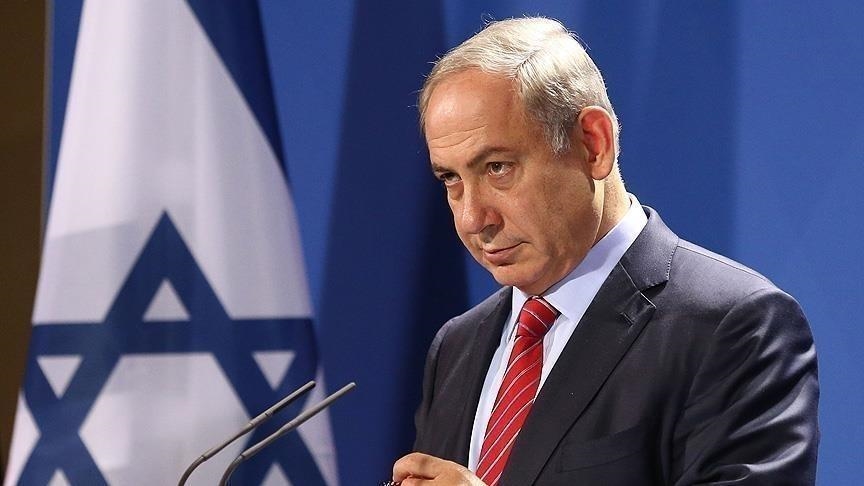Israeli channel exposes secret protocols showing Netanyahu blocked Gaza ceasefire, hostage swap deal
Channel 13 reveals protocols showing security officials backed comprehensive deal to release hostages, stop fighting in Gaza which Netanyahu rejected, worsening Israel’s global standing

JERUSALEM/ISTANBUL
Secret meeting protocols from Israeli political and security leaders during the most recent Gaza ceasefire deal show that Prime Minister Benjamin Netanyahu rejected proposals that could have secured the release of all hostages and paused the war, an Israel channel reported Monday.
The documents indicate that Israel’s top security officials believed a comprehensive agreement was possible and could have been followed by renewed fighting if necessary, but Netanyahu opposed the plan, said Channel 13.
“All of Israel’s leadership miscalculated that humanitarian pressure would force Hamas to surrender,” the report added.
Five months later, Israel’s approach to allowing aid into Gaza has significantly damaged its international reputation without weakening Hamas, it said.
The protocols show that the first of these meetings took place on March 1, 2025, during the initial stage of the ceasefire deal -- shortly after the bodies of hostages Itzik Elgarat, Ohad Yahalomi, Tsahi Idan and Shlomo Mansour were returned.
At the time, Israeli leaders debated whether to move forward with the second phase of the deal, which involved negotiating terms to end the war and securing the release of more captives, or resume military operations.
Maj. Gen. Nitzan Alon, Israel’s army official responsible for prisoners and missing persons, told officials that “the only opportunity to release the captives is to discuss the conditions of phase two,” the channel reported.
Strategic Affairs Minister Ron Dermer, who currently heads Israel’s negotiating team, responded: “We are not prepared to end the war while Hamas remains in power. We thought things would explode when negotiations began -- but they didn’t.”
During the same discussion, then-Shin Bet Director Ronen Bar said: “My preferred option is to move forward with phase two. We can easily return to the war. Let’s get everyone back first, then resume the fight,” according to the network.
Israel estimates that 50 hostages remain in Gaza, including 20 believed to be alive. Meanwhile, over 10,800 Palestinians are being held in Israeli prisons, many facing torture, starvation and medical neglect, according to both Palestinian and Israeli rights groups and media outlets.
Netanyahu’s stance
The protocols reveal that days after the initial hostages were released, a senior Israeli security official told the ministers that “it is possible to secure the release of more captives, but that requires engaging in talks about phase two -- ending the war.”
The political leadership, headed by Netanyahu, rejected the proposal, the official said.
Bar suggested ending the war to bring the hostages home, with the option of resuming military action later.
The first phase of the ceasefire and hostage exchange -- brokered by Egypt and Qatar with US support -- began on Jan. 19 and ended in March. Hamas adhered to the agreement.
However, Netanyahu abandoned phase two and resumed the genocide in Gaza on March 18.
Last week, Israel withdrew from indirect talks with Hamas in Doha over disagreements on withdrawal from Gaza, ending the war, and the fate of Palestinian prisoners and humanitarian aid distribution.
Misleading the public
Following Channel 13’s report on the secret discussions at the end of the hostage exchange, the Hostages and Missing Families Forum called the findings “deeply alarming.”
“The report definitively proves what we’ve been saying for a year and a half -- a comprehensive deal to bring all captives home was possible,” it said.
It accused the Israeli government of deliberately sabotaging potential deals while misleading the public.
“Senior security officials repeatedly presented the government with creative, realistic proposals that would have freed all hostages and also defeated Hamas,” the families said.
They added that dozens of their relatives were captured alive in Gaza but “were killed while awaiting a deal the Israeli government had no intention of pursuing.”
“Since the end of the previous deal, 50 soldiers have died. There have been no military achievements, and no captives have returned,” it added.
The Israeli army, rejecting international calls for a ceasefire, has pursued a brutal offensive on Gaza since Oct. 7, 2023, killing nearly 61,000 Palestinians, most of them women and children. The military campaign has devastated the enclave and brought it to the verge of famine.
Last November, the International Criminal Court issued arrest warrants for Netanyahu and his former Defense Minister Yoav Gallant for war crimes and crimes against humanity in Gaza.
Israel also faces a genocide case at the International Court of Justice for its war on the enclave.








